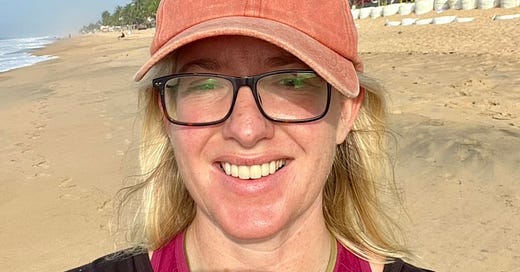Dear Reader,
‘‘There are two alligators living in the lagoon,” I hear ten-year-old Harper tell Michael in the backseat as we drove from the Ivory Coast city of Abidjan to the coastal resort town of Assinie-Mafia.
Harper was referring to the Aby lagoon, which drains into the Atlantic ocean, and creates a barrier between the town of Assinie-Mafia and a san…
Keep reading with a 7-day free trial
Subscribe to From Montana to Portugal to keep reading this post and get 7 days of free access to the full post archives.



